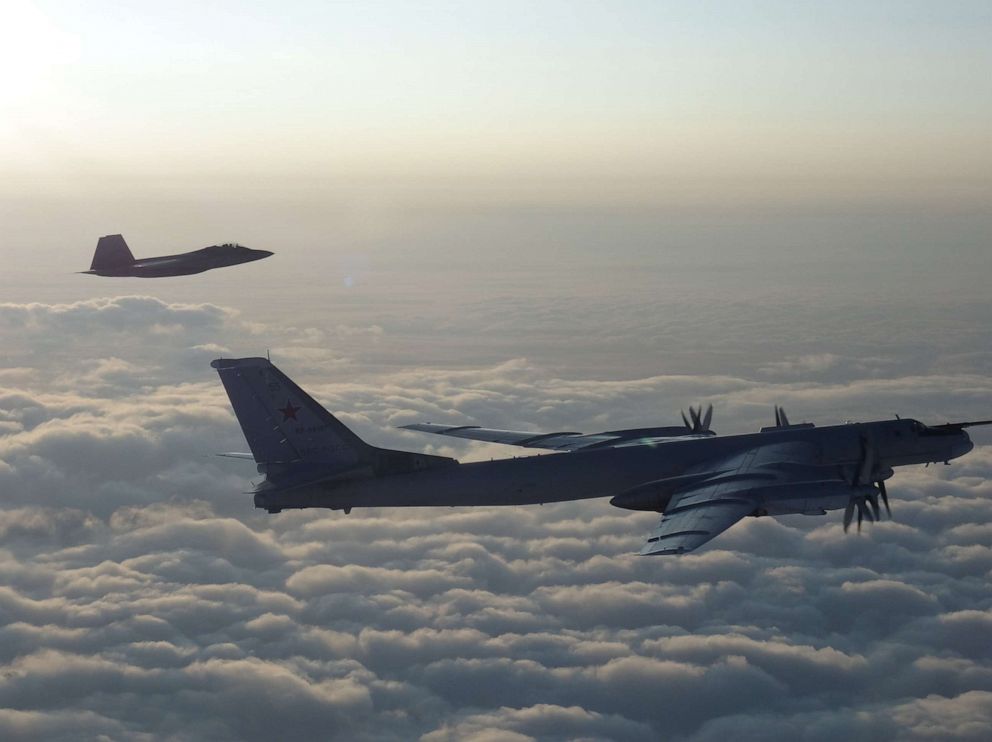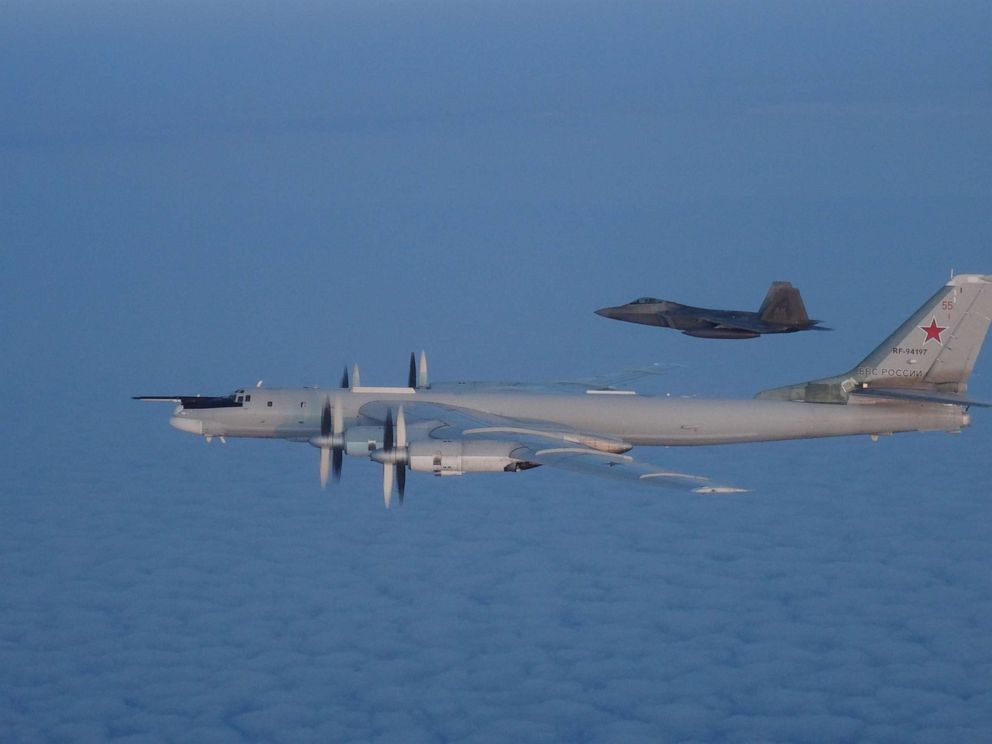US and Canadian military aircraft intercept 2 Russian bombers north of Alaska coast
It's believed to be the fifth Russian intercept by the U.S. this year.
U.S. and Canadian fighter aircraft intercepted two Russian Tu-95 Bear H bombers over the Beaufort Sea north of the Alaskan and Canadian coast on Thursday, according to North American Aerospace Defense Command (NORAD).
The bombers had entered the Alaskan and Canadian Air Defense Identification Zones (ADIZ), which extends 200 miles off the coast, but they did not cross into U.S. or Canadian sovereign airspace. It's believed to be the fifth Russian intercept by the U.S. this year.
The two U.S. F-22 fighters and two Canadian CF-18 fighters were supported by an American E-3 Sentry, KC-135 refueling aircraft and C-130 tanker.

"NORAD's top priority is defending Canada and the United States. NORAD operators identified and intercepted the Russian aircraft flying near our nations," said NORAD Commander Gen. Terrence O'Shaughnessy in a statement on Thursday. "Whether responding to violators of restricted airspace domestically or identifying and intercepting foreign military aircraft, NORAD is on alert 24 hours a day, seven days a week, 365 days a year."
The ADIZ is airspace that stretches 200 miles from the coastline and is monitored in the interest of national security. U.S. territorial airspace begins 12 miles from the coastline.
Last week, two Russian aircraft entered the Alaskan ADIZ but were not intercepted by U.S. aircraft. The last intercepts occurred in May when Russian aircraft were intercepted by U.S. fighter jets two days in a row after they crossed the Alaskan ADIZ.
The May intercepts were the first to occur close to Alaska since January, when Russian bombers entered Canada's ADIZ and were intercepted by both Canadian and U.S. aircraft.

Over the last two years, Russian missions close to Alaska have occurred two to three times a year.
"NORAD employs a layered defense network of radars, satellites, and fighter aircraft to identify aircraft and determine the appropriate response," NORAD said in a statement. "The identification and monitoring of aircraft entering a U.S. or Canadian ADIZ demonstrates how NORAD executes its aerospace warning and aerospace control missions for the United States and Canada."
The U.S. military also flies its aircraft off the Russian coast in international airspace.




